The flooding, which was caused by the overflowing of the River Niger has greatly affected many states of the federation. To alleviate the sufferings of people displaced by the flood, billions of Naira has been allocated by the Federal Government and donated by well meaning groups and individuals.
Despite the efforts aimed at reducing the devastating impact of the flood, some parts of the country are still under water with many residents unable to live in their homes or run their businesses.
Here traditional healer Joseph Edem, his wife Endurance and children Godfreedom, aged 10, and Josephine, 12, stand in front of their Igobeni house. The family says the floods were sudden. “I thought we were going to die,” says Josephine. “I don’t know where many of my friends are because water also entered their house.”
Nigerian farm worker Dalami, pictured above in Ahoada in Rivers state, says the day the floods hit more than 50 goats were drowned. Photographer Gideon Mendel has visited communities in the south battling to recover six weeks after their homes were flooded. He found many people’s houses in Igobeni, Bayelsa state, still waist-high with water.
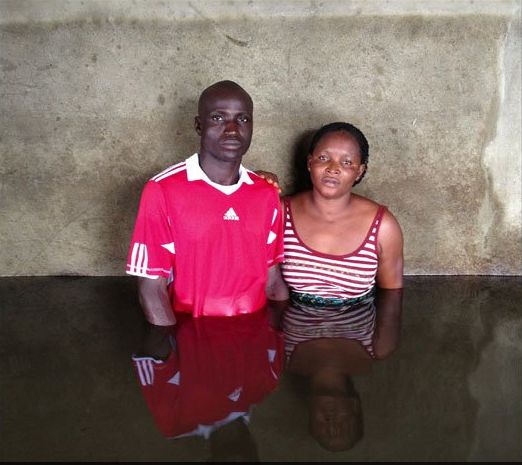
Kingsley Isiakpere and Edna Silas, who have six children, said they were sleeping when the water starting coming into their Igobeni home on 29 September. “We started packing in a rush,” says Mr Isiakpere. “[Now] my walls are spoiled, we have lost clothes, furniture and our building material to improve the house. There is no help from the government. If floods carry on like this people will run away out of this country.”
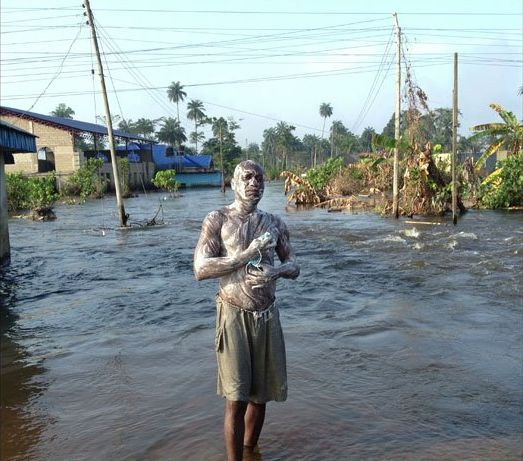
Ratmas Ebiarohon, pictured washing himself in floodwaters in Igbogeni, says the floods came “without stop”. “My whole house was covered. I am a furniture maker, and it destroyed all my equipment – my generator, my spray machine, my jigsaw. Now I am totally down. I do not know what to do. The value of what I lost is about 4.5m naira [$28,550, £17,800].”
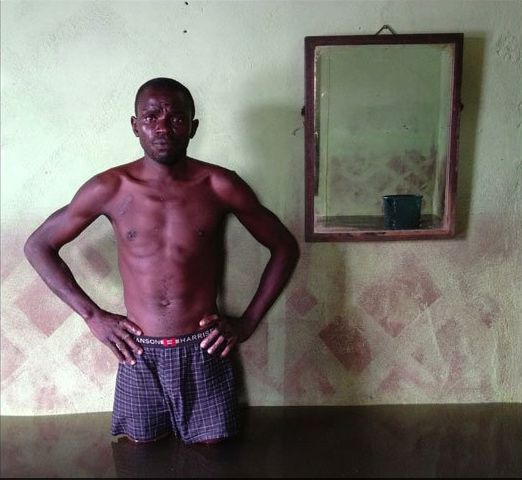
“When the floods started coming we thought it was a joke,” says 37-year-old Godspower Kenz, pictured in his home in Igbogeni. “We never knew it would come up to this level. Most of our possessions are damaged. I have thrown away so many things. There is no work, no food, nothing for us.”
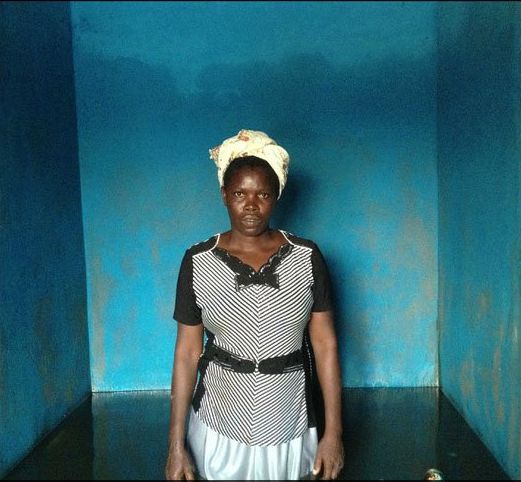
Florence Abraham, 48, says she fled with her husband and five children when the floods came. “I used to employ 26 workers in my bakery [in Igbogeni]. The floods destroyed all my equipment: My mixers, my rollers, my ovens. Everything is lost. I cannot count how many millions of naira. We have no help from anybody.”
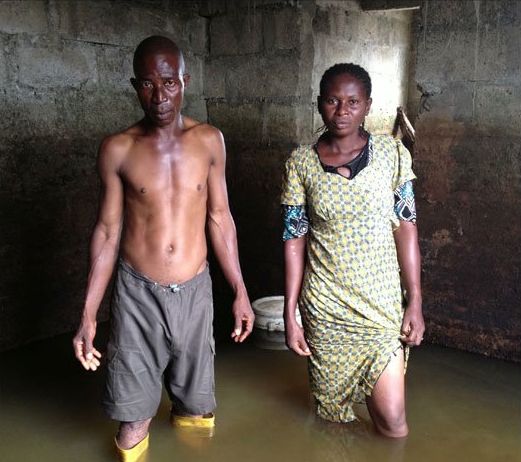
Wisdom and Lilian Ginikawa had a small shop selling medicines on the main road nearby their house in Igbogeni. “We had to run away and leave our property,” says Mr Ginikawa. “The flood destroyed all our things and also people have come and stolen things from the house. We did not expect the flood, there was no warning. I have never seen such a flood in my life. We have no money to start afresh. We look for God, but God can’t help.”
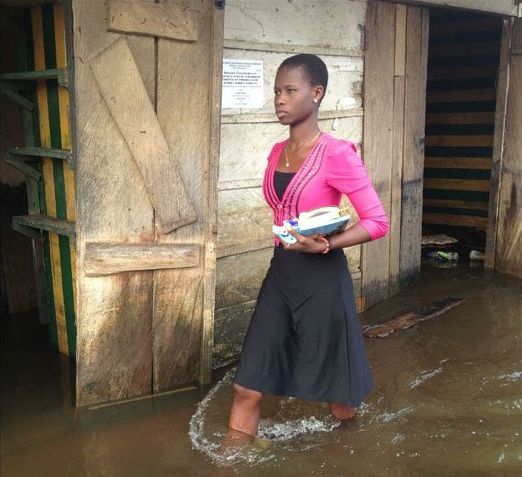
Here a young woman strides through floodwaters on her way to church on a Sunday morning, in Igbogeni. Many areas of Bayelsa state, in the country’s oil-rich Niger Delta region, have been flooded, including Otuoke, the home village of President Goodluck Jonathan.
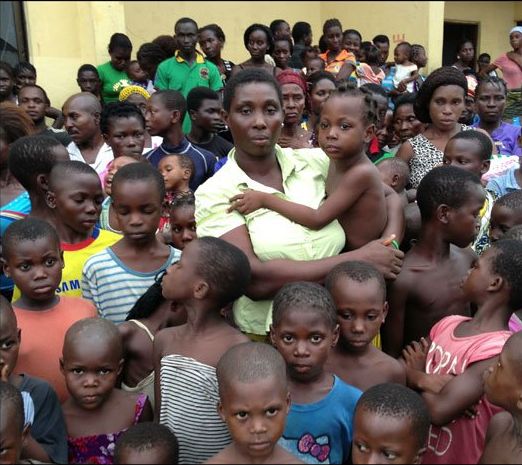
“My child Godstime was a year old. He was taken away by the water,” says Toinzbeze Nelson, pictured holding her daughter Destiny. “When I went to the house to try to save some things, I put my child on the bed. I turned around and he had fallen in the water.” She was living in a squalid camp of wooden houses in Yenagoa for people who left the Bakassi peninsula when it was awarded to Cameroon several years ago and has now sought refuge at a nearby school.
“We lost so many things I cannot count. Mosquitoes they bite us, we do not have enough food here,” Ms Nelson says. Other camps have been set up in Bayelsa to accommodate those displaced by the flooding. The one pictured here is called Igbogeni Camp Nine and is now home to around 500 people.
Credits to BBC
We are immensely grateful to all those who through cash and kind have helped in alleviating the untold hardship and suffering of these Nigerians and to remind us that there is still more to be done.

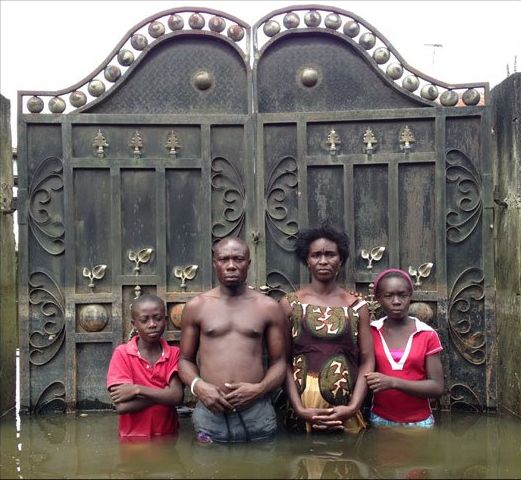
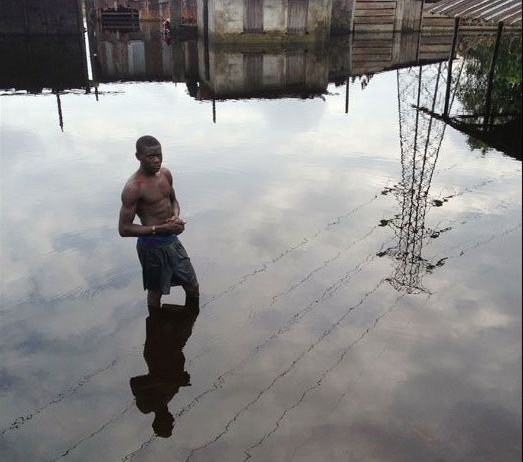
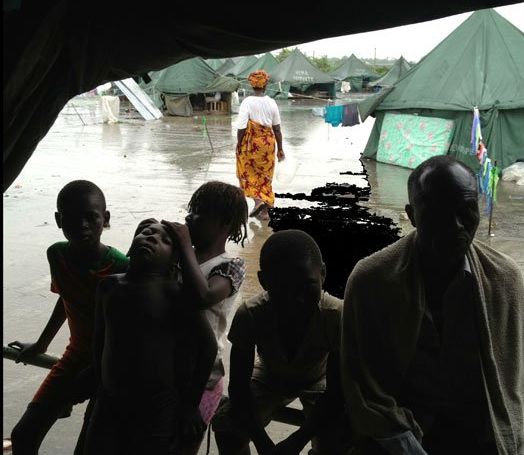
No comments:
Post a Comment